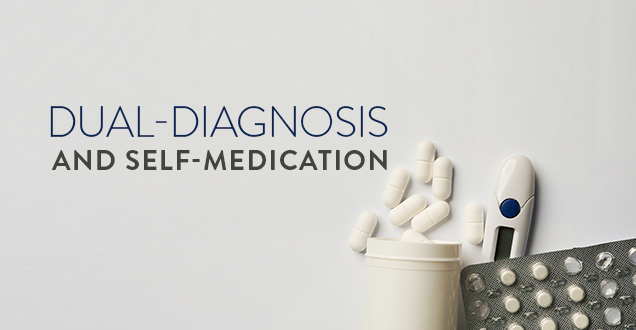
Recovering from an addiction takes hard work and good therapeutic support. When a person also suffers from mental illness, the process of addiction recovery becomes even more complicated. “Dual diagnosis” is a term used when an individual suffers from both an addiction issue and a mental health disorder – and both are usually interrelated. The person who is dealing with a dual diagnosis must receive effective treatment for both issues in order to recover and regain his or her health.
Dual diagnosis cases happen for any number of reasons. Some individuals are prescribed medications to help them manage a mental illness but then start to abuse their prescriptions. Others do not receive effective treatment for a mental illness, such as depression or post-traumatic stress disorder, and unwittingly become dependent on drugs or alcohol to self-medicate. Taking such substances temporarily reduces the pain they experience from the mental illness and “helps” them manage their symptoms. Unfortunately, addiction and mental illness often combine in terrible ways, increasing the severity of symptoms and creating new health complications.
There are many different types of dual diagnosis conditions, as any combination of substance abuse and mental illness falls under this definition. This blog, however, will focus on two common mental issues, anxiety and bipolar, that commonly co-occur with substance abuse. When paired with substance abuse and addiction, these mental conditions can lead to dual diagnosis of anxiety and bipolar disorder.
Anxiety and Substance Abuse
Almost everyone experiences anxiety occasionally, usually in connection with a specific event or as a result of a combination of circumstances that are difficult or stressful to manage. People with an anxiety disorder, however, experience chronic high levels of anxiety, which may or may not be obviously linked to any specific circumstance. A few examples of anxiety disorders include generalized anxiety disorder, panic disorder and obsessive-compulsive disorder. Post-traumatic stress disorder, or PTSD, is also a severe type of anxiety disorder.
People coping with an anxiety disorder may always feel tense and alert and have extreme difficulty relaxing. They may not be able to enjoy the company of other people or activities that previously gave them pleasure. They may start to abuse alcohol or illicit substances in order to calm down and feel better. Over time, though, such abuse can easily become an addiction. An individual with an anxiety disorder may also start to abuse prescription medication intended to treat the anxiety, taking more than prescribed.
Treatment for a dual diagnosis of anxiety and substance abuse requires both addiction treatment to recover from their substance abuse and therapy to help the individual understand the causes of their anxiety and work through any past trauma or current situations that are behind it.
Bipolar Disorder and Substance Abuse
Bipolar disorder, also called manic-depressive disorder, is characterized by unusual shifts in a person’s mood, energy levels or activity levels. These changes can be extreme, and they disrupt the person’s ability to maintain relationships or perform normally at school or at work. Bipolar disorder is not easy to recognize from the outside, and sometimes its symptoms are mistaken for other types of illness, such as clinical depression. People who are close to the suffering individual may be able to see the pattern emerge over time, but a psychological evaluation is necessary to truly diagnose bipolar disorder.
People with bipolar disorder may try to manage the most severe changes in their mood and energy levels by self-medicating. They may use alcohol or marijuana to calm manic periods, and stimulants to raise mood during a depressive period. Some individuals may use stimulants to increase or prolong manic periods, enjoying the extreme good mood and high energy they experience. Unfortunately, use of substances to manage symptoms usually results in overall worsening of symptoms as well as a great risk of developing addiction to one or more substances.
People coping with both bipolar and a substance abuse problem need simultaneous treatment of both conditions because changes in treatment of one condition can so easily trigger the symptoms of the other. Medications prescribed to treat bipolar disorder may not work or could even be damaging if a person simultaneously uses alcohol or illicit drugs. Effectively treating the addiction requires reducing the energy and mood swings that trigger the substance abuse. Finally, bipolar disorder is not a condition that improves by itself. Unless a person receives both medical and psychological treatment, it is unlikely that they will be able to overcome their addiction, as they will continue to depend on self-medication to manage their symptoms.




